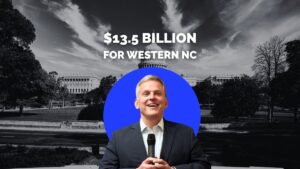Source: The News & Observer
North Carolina is poised for a major economic boost thanks to a surge in clean energy investments, according to a new analysis by E2, a nonpartisan group of environmental business leaders. The report examines nine clean energy projects announced in the state since the Inflation Reduction Act passed in August 2022.
Billions in Investment, Thousands of Jobs
E2 estimates these projects will generate a total of $10.1 billion in economic investment during construction, along with an additional $1 billion annually over the facilities’ lifetimes. This translates to $10.2 billion added to the state’s gross domestic product during construction, followed by $593.5 million annually.
The projects are expected to create a significant number of jobs, with an estimated 24,600 positions supported during construction and at least 5,400 permanent jobs once operational. These jobs extend beyond the clean energy sector, with E2’s Bob Keefe highlighting the positive impact on local businesses like restaurants and real estate.
“I really do believe we’re at the advent of an American economic revolution, the likes of which we haven’t seen in generations. And North Carolina really is at the center of it all,” Bob Keefe, E2’s executive director, told The News & Observer.
State Officials Confirm Positive Outlook
The North Carolina Department of Commerce supports E2’s findings, indicating they provided Job Development Investment Grants for eight of the nine projects. They estimate a combined economic impact of $56.1 billion while the grants are active, with the potential for even greater long-term benefits.
Commerce officials attribute North Carolina’s attractiveness to clean energy businesses to its skilled workforce, favorable business climate, and strong educational system focused on clean energy jobs.
Independent Economist Validates Methodology
Mike Walden, a retired economist from N.C. State University, reviewed E2’s analysis and confirmed the standard methodology used. He highlighted the report’s consideration of direct, indirect, and induced economic effects, providing a comprehensive picture of the projects’ impact.
Walden points to the “energy transformation corridor” developing along the U.S. 64 corridor, connecting major projects like Toyota, VinFast, and Wolfspeed. He anticipates this area attracting further investment from suppliers and other businesses supporting the clean energy boom.





